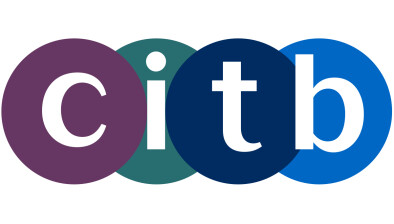CITB secures industry support for levy proposals

The CITB has secured the support required to continue its role to support skills and training across England, Scotland and Wales for another three years by way of the consensus process.
Eleven of the 14 Prescribed Organisations (trade bodies representing employers across the industry) supported the training body’s levy proposals.
The provisional result will now be taken to the secretary of state for education to make the final decision on the issue of a new, three-year levy order which, if approved, would be issued for 2022-2025. This will see the Levy continue at the following rates at 0.35% for PAYE and 1.25% for Net paid (Taxable) CIS Sub-contractors.
CITB said it will now get on with delivering this year’s Business Plan and working with industry to agree its forward plan. In doing so, it will listen to the feedback it received on how it can communicate its plans and impact more clearly and ensure its support is relevant, accessible and easily understood.
Overall, 66% or two thirds of the total number of levy-paying employers agreed to the proposals, with 63% agreeing when measured by the total amount of Levy paid. This result was based on submissions from the 14 Prescribed Organisations and an independent survey of 4,000 employers who were not members of POs.
Apprenticeships and skills minister Gillian Keegan said: “My thanks go out to both the staff at the CITB for facilitating a complex process and to the employers, other members and reps for your active participation.
“This last 18 months have been unusually challenging for the construction sector and that is why the CITB decided to delay the consensus process from 2020 to 2021. I recognise that Covid-19, one of the key factors for the postponement, has not gone away. Therefore the sector’s willingness to engage with the CITB is even more valuable.
“The next step in the process to progress the levy proposals towards a levy order now rests with me, before doing so I will be considering the proposals in detail.
“I know that the CITB will relish returning its entire focus to delivering skills provision for the construction sector at a time when it is more crucial than ever. I also want to welcome Tim Balcon in his new role as CITB CEO and thank Sarah Beale for the great work she has done for many years in leading the CITB.”
Peter Lauener, CITB chair, said: “Construction has been through a tremendously difficult couple of years. CITB moved quickly to support employers by freezing Levy collection last year, cutting bills by half this year, and putting the right support in place.
“We will carry on with delivering our current plans and get started with shaping our future ones. I want to thank everyone who participated in the consensus process this year – your input is invaluable and will help shape CITB’s support for you in future.”
Sarah Beale, outgoing CITB chief executive, said: “At an extremely tough time, construction employers have demonstrated that they still believe that the Levy and grant system is critical in addressing the industry’s skill needs and their support for the levy proposals. In developing our future plans, we will listen hard to what employers told us in how we can ensure that the levy works for them and provides support that is relevant, easy to understand and accessible.”
Tim Balcon, new CITB Chief Executive, added: “It’s good that so much of what employers are asking for is already in the Business Plan, so we need to make support easier to access and understand and to keep the sector better informed.
“CITB is committed to maximising the value of the levy for employers, providing practical and financial support for everyday training needs as well as tackling long-term skills needs.”
The Federation of Master Builders (FMB) called for more to be done to enhance the CITB’s value amongst smaller builders.
Brian Berry, chief executive of the FMB, said: “The FMB is passionate about supporting its members to attract new people into the industry, from all backgrounds, and train existing workers in the skills they will need for the future. It recognises the role of the CITB as a co-ordinating body to help the industry deliver on its skills needs, and while I welcome the consensus outcome, my members expect better results from their training body.
“It is concerning that the perception of CITB’s performance and value of the levy is poorest amongst the smallest firms. I welcome the CITB’s commitment to work with the FMB to address, our fundamental worries about the way CITB communicates; making access to CITB support easier and more transparent for micro firms; bringing greater benefits to small employers; and ensuring fairness of process so that everyone who should pay the levy does so.”

















